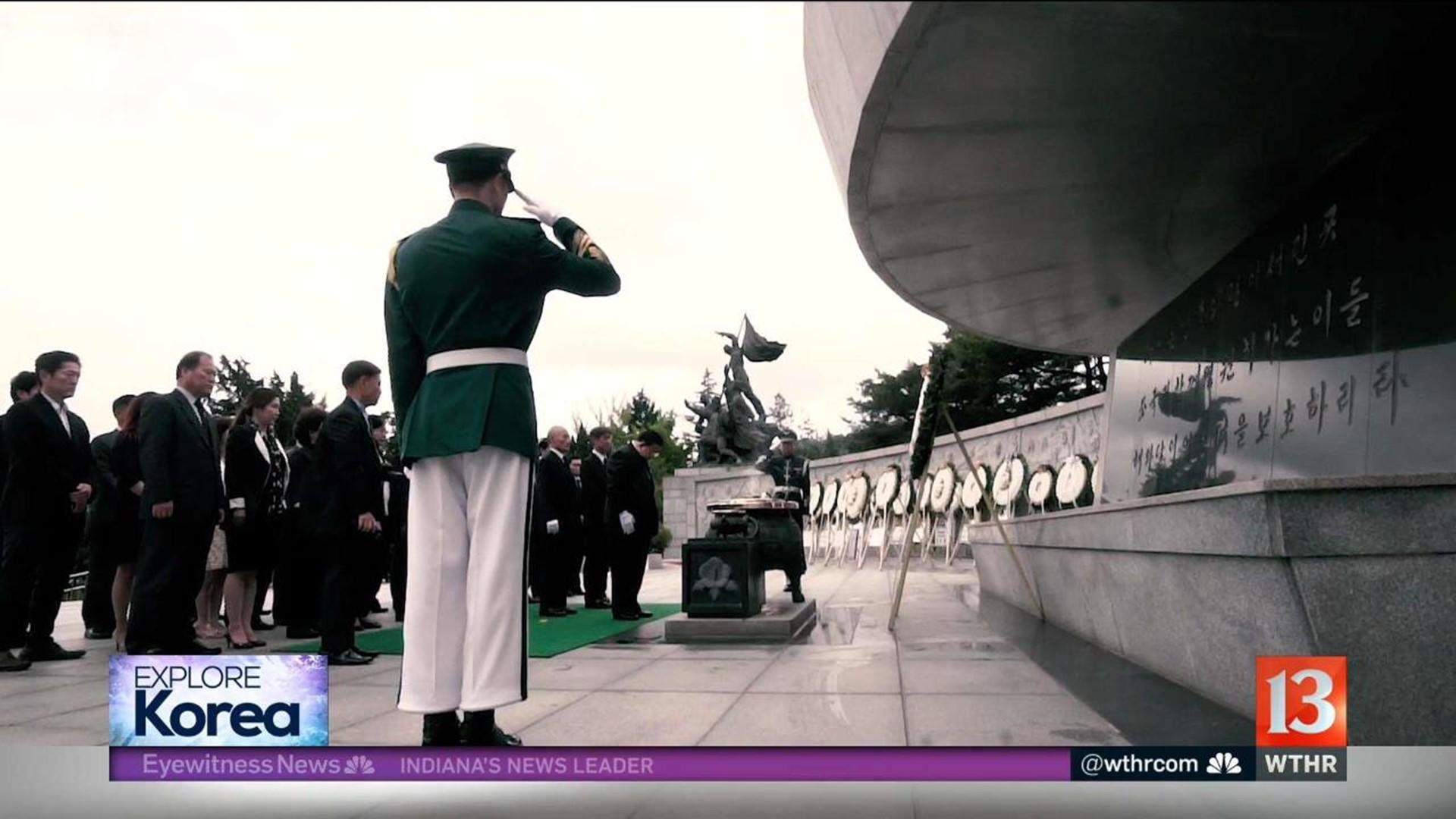SEOUL, South Korea (WTHR) - In Seoul, military might is on display - tanks, planes and a variety of weapons. But, there is also a sobering reminder of a war that started 67 years ago; rows of reminders - 165,000 are buried at the Seoul National Cemetery.
The Korean War was relatively short - just 3 years - but thousands of Americans were killed, including 922 from Indiana. Korea remembers the sacrifice of Americans; those who went to battle can't forget.

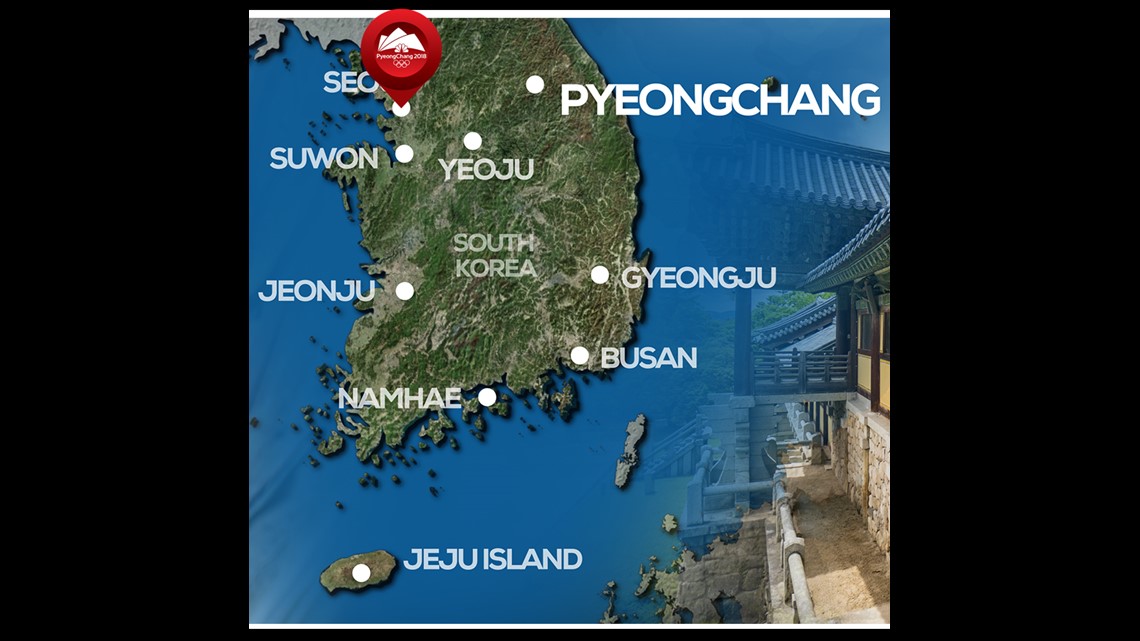
"The last words I heard there was people crying to their mother," 85-year-old Stanley Nelson told us from his home in Otwell, Indiana.
Nelson is one of nearly 85,000 Hoosiers who fought in the Korean War. He was an engineer on a tank, eventually taken prisoner and shot multiple times. He suffered critical wounds to his leg that required amputation.
"Every time I put my leg on in the morning, that's the first thing I do, I'm reminded that I was the lucky one," Nelson said.
When Nelson was hit by shrapnel, he thought he would bleed to death.
"The cold was my enemy but it was my savior," said Nelson. "The cold weather, I think, might have been what saved me from bleeding to death."

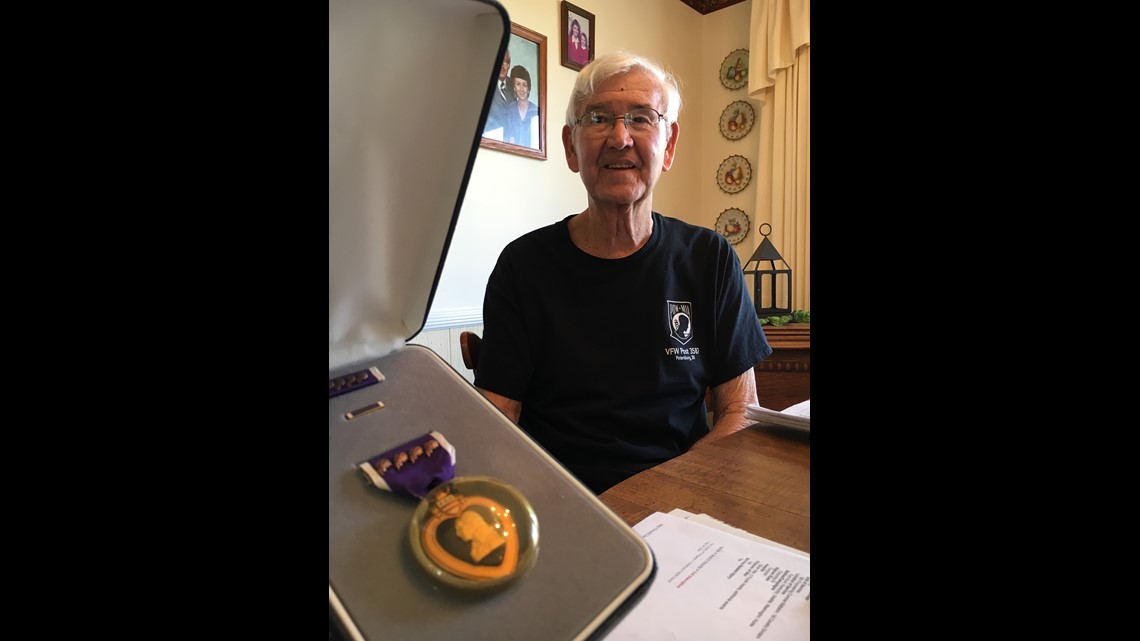
The decorated war veteran still has a vivid memory about being taken prisoner and killing a Chinese soldier in hand-to-hand combat after jumping off a tank.
"He took that pistol and put it to my head," Nelson recalled. "It was the most frightening moment of my life."
Nelson says a Chinese soldier opened his mouth looking for a gold tooth then kicked him in the jaw. Nelson pauses when he thinks about the atrocities he saw involving children.
"That's what I can't talk to you about or I'll cry," Nelson said.
Nelson said his mother back home in the United States had a sense that her son had been wounded in war.
"A mother can hear a dying son's whisper 10,000 miles away. She knew I was wounded. She didn't have to be notified. The War Department didn't need to send her a telegram."
Inside his home in southern Indiana are the many medals Nelson received over the years including five purple hearts and a Silver Star - the United States' third highest honor for valor in combat.
He fought. He survived. He is grateful.
"I have a lot to be thankful for 'cause the last words I heard from any man on that mountain that I could understand was 'I'm sorry, mother. Please forgive me. I love you'," Nelson said. "Each day I attached my leg, I'm thankful. I feel like I had a reason to live."

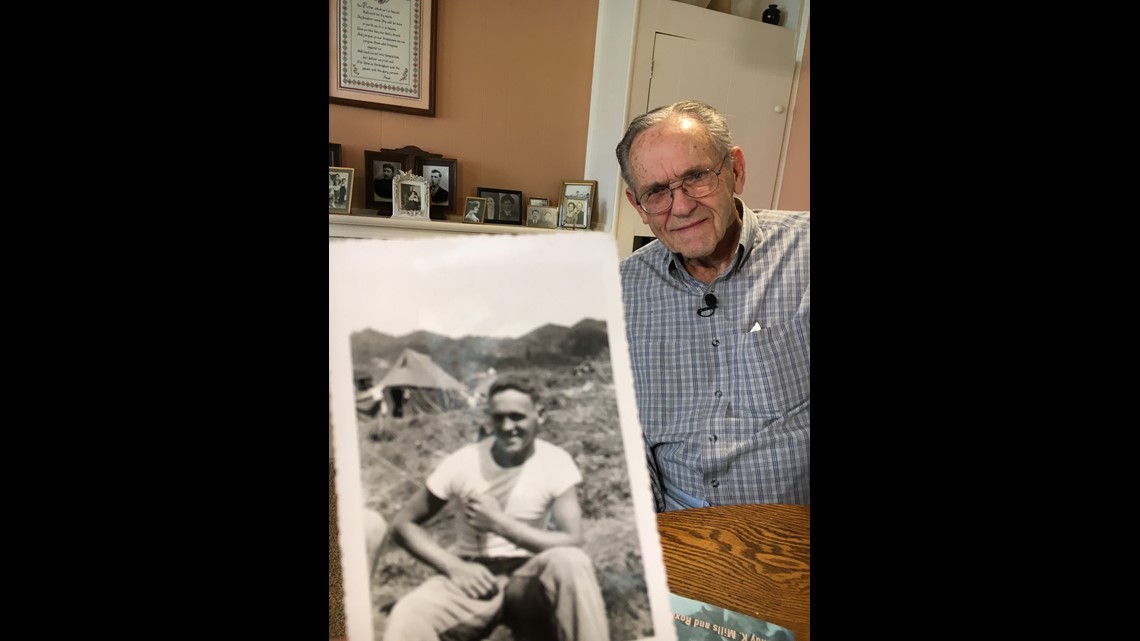
The city of Evansville had many young men serve in Korea, including 92-year-old Bill Wright. He was one of the C-Company Marine Reservists from Evansville.
"'We fought all night long'," Wright said, reading one of the many letters he wrote while serving in Korea. "'This will be my fourth Christmas overseas and the worst one because I can't be with Evelyth'."
Wright was sent to Korea to handle communications but ended up on the front lines because so many men were killed.
"That's when we laid all night long on that hill. It was 40 below zero. If you want to see my hands, you see my fingers - that's frostbite that showed up on me," Wright said.
"After awhile, you accept the fact that you're alive or you're dead. One or the other."
Wright said he often thought of his wife back home in Indiana while he was involved in battle.
"That's what bothered me. When we were told we weren't going to make it, I thought of her, 'cause we had just gotten married. I was leaving her," Wright said.
Like many veterans, Wright finds it difficult talking about the war.
"The dead were all over the place - women, children and all," Wright recalled through tears. "Too many memories. Too many memories."
Wright says he never wanted to return to Korea after the war.
"There was nothing there for me but bad memories."
In Korea, they remember. Every June 6, the country marks its Memorial Day with services at the Seoul National Cemetery, honoring those who fought and those who made the ultimate sacrifice.
Americans are remembered here.

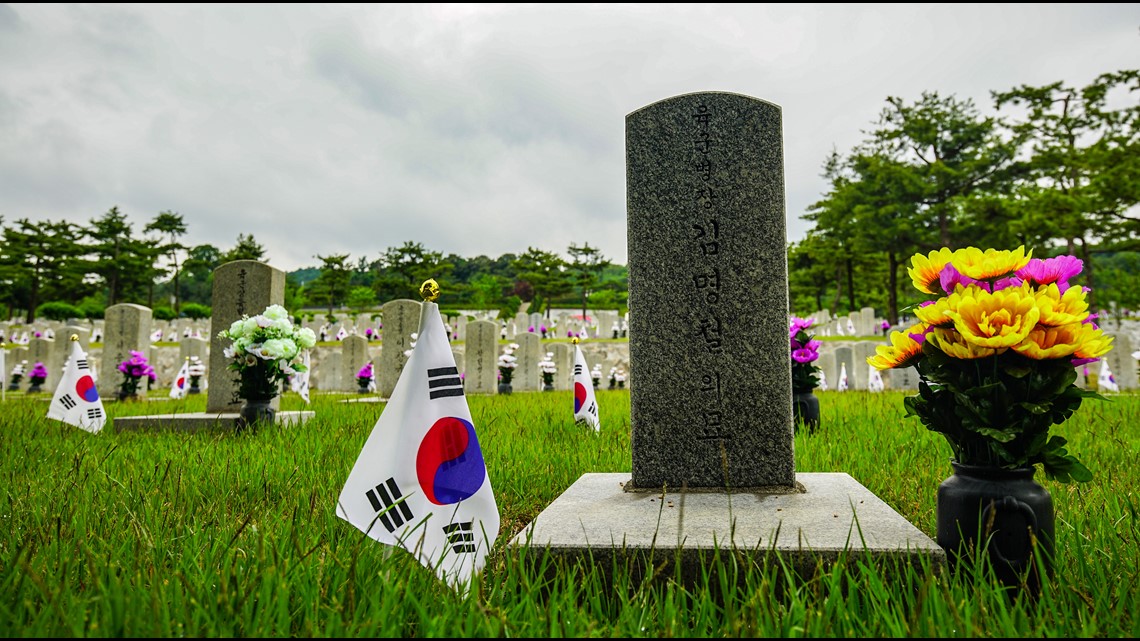
Korea is grateful for men like Stanley Nelson and Bill Wright who answered the call and traveled a long way from home to defend a country they never knew and people they never met.

